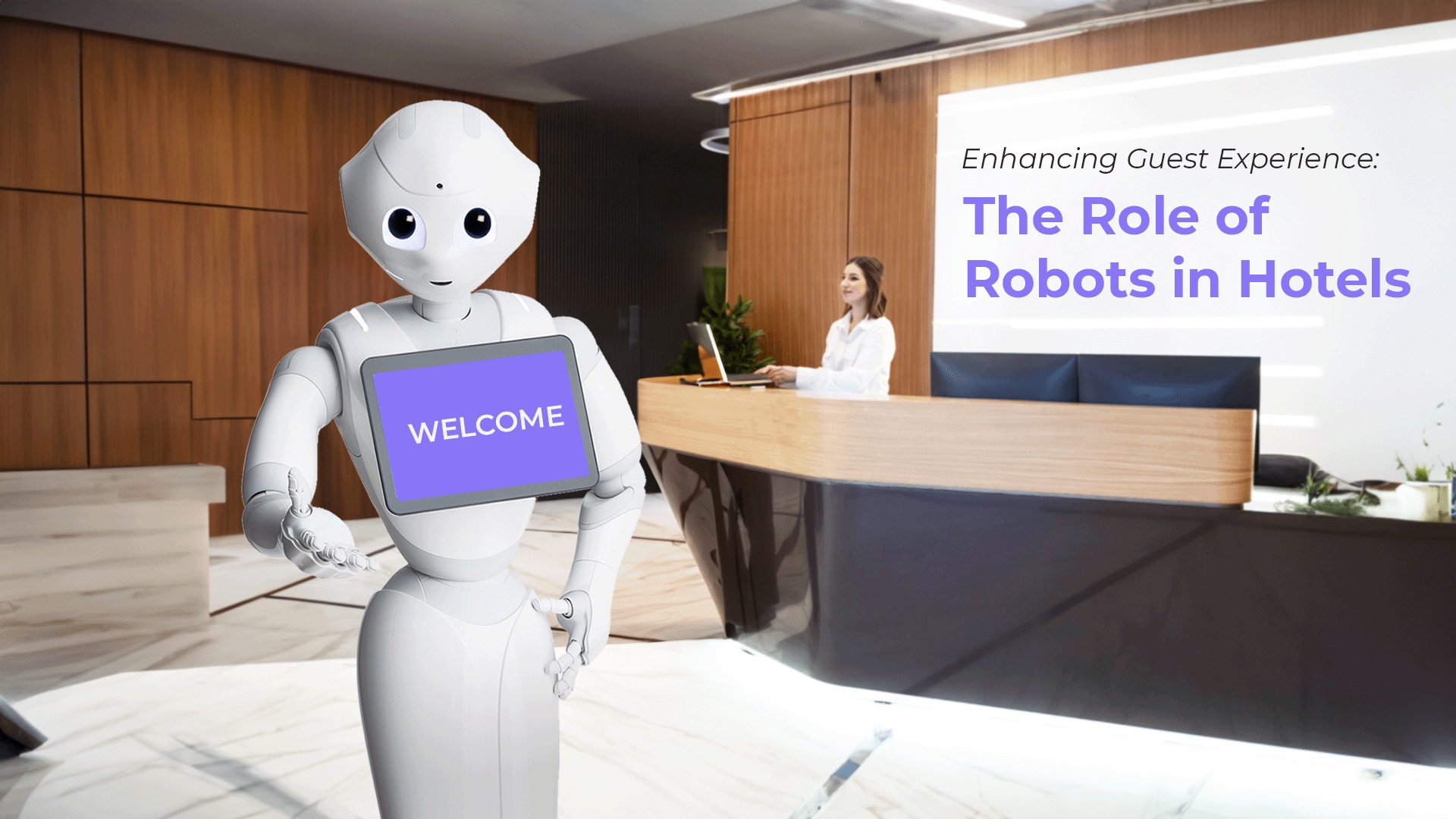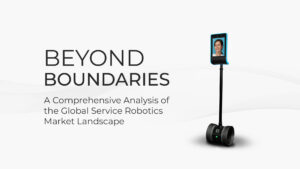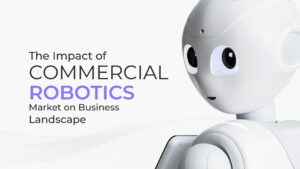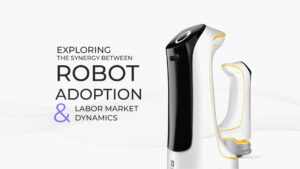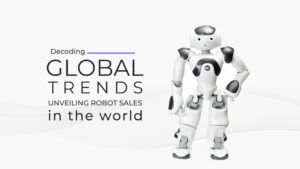Following a significant decline experienced during the pandemic’s peak, the hospitality industry is currently experiencing a resurgence. However, concerns about an impending economic downturn and persistent public health anxieties necessitate that businesses within the hospitality sector elevate their performance to maintain relevance and secure a leading position in the minds and affections of customers.
Savvy business owners in the hospitality industry are now embracing automation trends visibly and innovatively. They are accomplishing this by integrating autonomous service robots into their daily operations. As a robotics service provider, we perceive this trend as a harmonious fusion of fundamental human requirements and technological advancement. Deploying robots in environments where individuals anticipate, and demand seamless customer experiences is profoundly logical. Robots are designed to save human workers time and effort, enabling hospitality staff to dedicate more energy and attention to delivering exceptional customer service.
Enhancing guest experiences: First impressions
Integrating robot assistance at guest check-in and concierge locations within hotels, restaurants, or casinos can elevate the overall guest experience. It offers the convenience of contactless check-in, rapid retrieval of information, and guided tours, all without waiting in line for an available staff member. In this era, where younger generations of travelers and hospitality guests are accustomed to conducting most activities on their own terms with a mere click of a button and where self-scan apps and self-checkout systems are ubiquitous in grocery stores, incorporating service robots in a hospitality setting distinguishes itself by providing a more physically interactive and personable experience.
Unlike static screen interfaces, these service robots actively engage with guests, imparting a genuine sense of customer service in each interaction. By assisting with tasks such as check-in procedures, making dinner reservations, addressing inquiries about the establishment, or physically guiding guests to their desired destinations, these robots serve as higher-touch substitutes for human counterparts, surpassing the level of personalized care offered by phone applications.
Examples of robot usage in hotels
One of the most common applications for robots in hotels is to serve as concierges. These robots can answer guest questions, provide directions and recommendations, and even make reservations. For example, the Henn na Hotel in Japan has deployed a team of robots that speak more than one language and are available around the clock to assist guests. Robot Pepper has been deployed in the hospitality sectors worldwide to provide a more personalized response to guests at the front desk, offer assistance in navigation, or engage with visitors in an interactive way never possible before to minimize the boredom of the waiting time.
79% of U.S. hotels are experiencing staffing shortages. Robots can ensure that existing employees have the time and bandwidth to provide top-notch customer service is an ongoing struggle.
Another way hotels are using robots is for cleaning tasks. These robots can clean rooms, hallways, and other areas of the hotel, reducing the workload of human staff and ensuring consistent cleanliness throughout the hotel. Savioke’s Relay robot is one such example, delivering items like towels and snacks directly to guest rooms.
Robots can also be used for security, such as monitoring the hotel premises and detecting potential hazards. Knightscope’s K5 Autonomous Data Machine (ADM) has been deployed in several hotels and can monitor for unusual activity, run license plate reads, and alert human security personnel when necessary.
Benefits of robots in hotels
The use of robots in hotels offers many benefits. Firstly, robots can interact with guests in more than one language, improving communication and understanding. Secondly, robots can perform repetitive tasks such as cleaning and stocking without getting tired or making mistakes. This can improve efficiency and reduce labor costs.
Another benefit is that robots can enhance safety and security. They can detect and report safety hazards and ensure guests are always protected. Additionally, robots can provide additional services such as room service or entertainment, improving the overall guest experience.
Limitations of using robots in hotels
While the benefits of using robots in hotels are many, there are also some limitations to consider. One major limitation is the high cost of implementing this technology. Robots can be expensive to buy and maintain or keep updated, which may be a barrier for some hotels.
Another limitation is that robots provide a different level of personalization and human touch than human staff. Guests may feel more comfortable interacting with humans rather than machines, and robots cannot provide the same level of empathy and understanding that humans can.
Conclusion
Robots do not aim to supplant the indispensable human workers who are vital in delivering exceptional customer service. Such a substitution is simply not feasible since robots lack human qualities. Nonetheless, robots can assume the burden of numerous mundane and repetitive tasks that often encumber the individuals behind the front desk, wearing aprons or operating vacuum cleaners. Doing so frees up valuable time for these workers, enabling them to concentrate on intricate responsibilities and interpersonal communication that significantly enhances the overall guest experience.
In conclusion, robots have a significant role in enhancing hotel guest experience. They can provide many benefits, including improved quality of service, increased efficiency, and enhanced safety. While there are limitations to their use, robots are an exciting and innovative addition to the hospitality industry, and we can expect to see many more hotels deploying this technology in the coming days.
Drop us a line
Error: Contact form not found.
